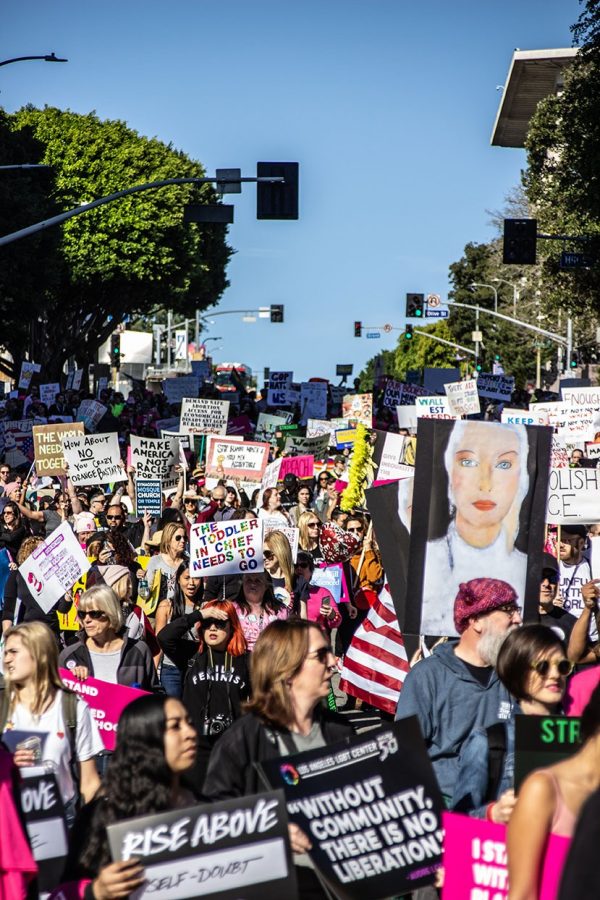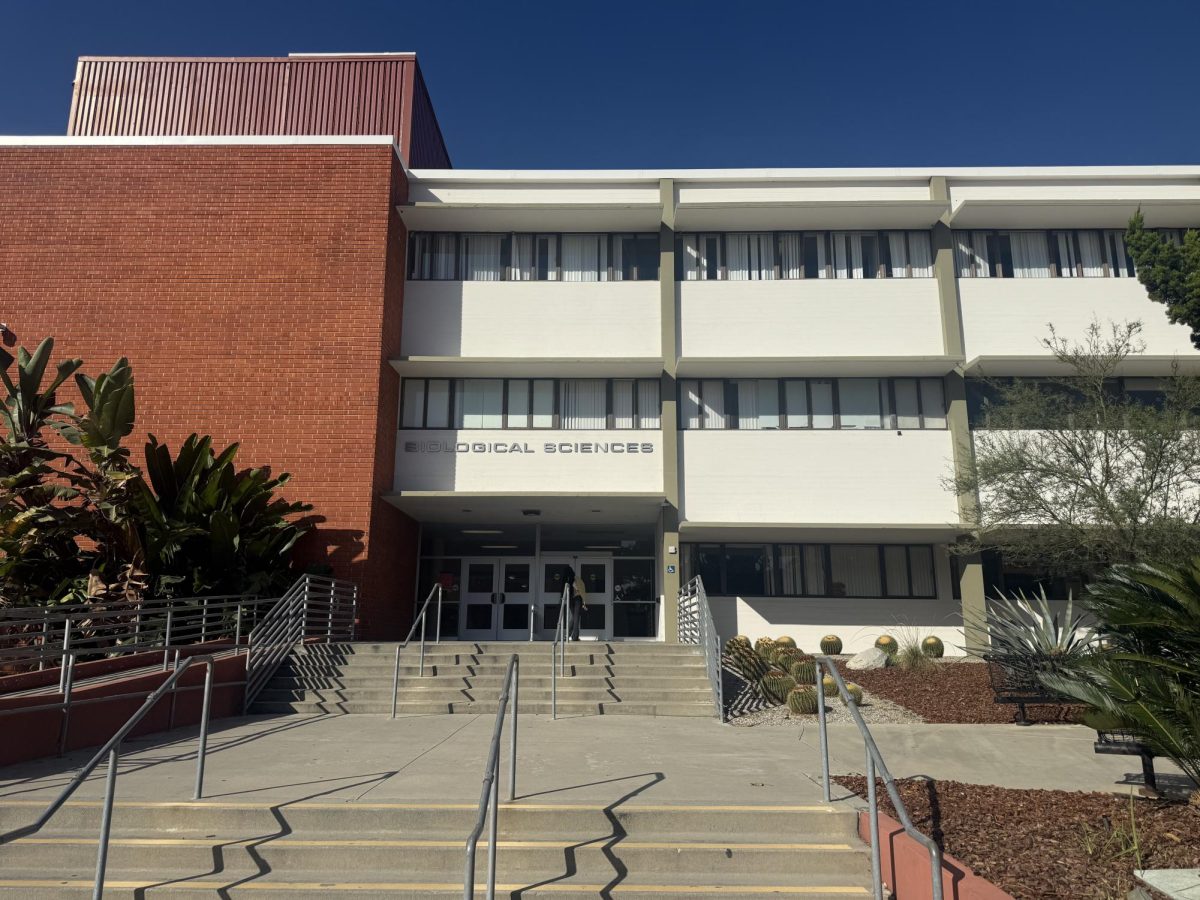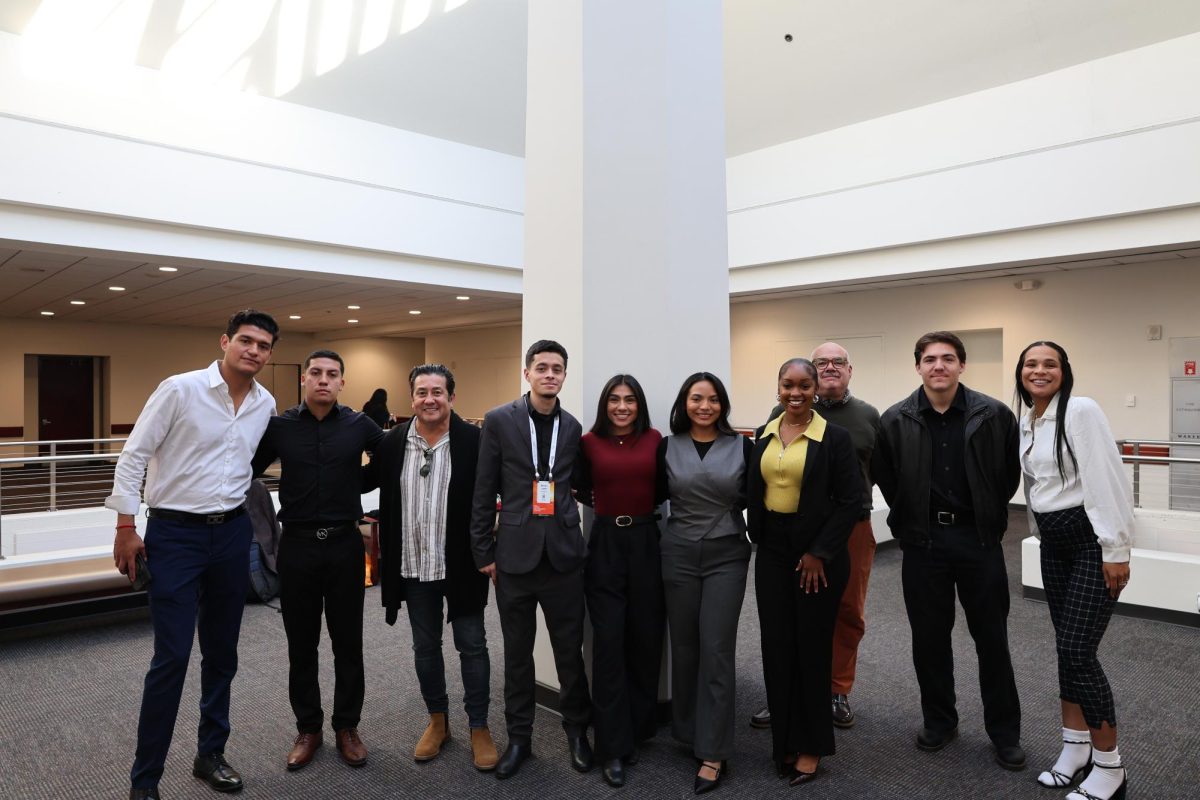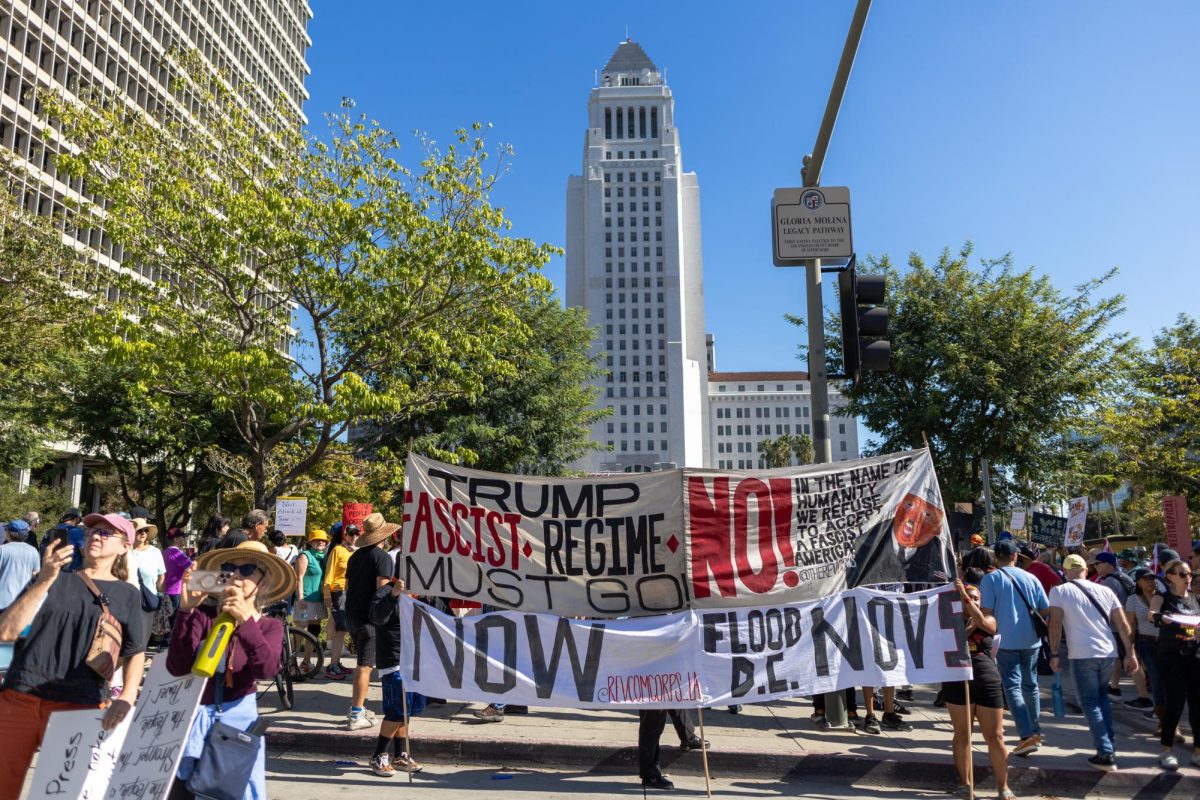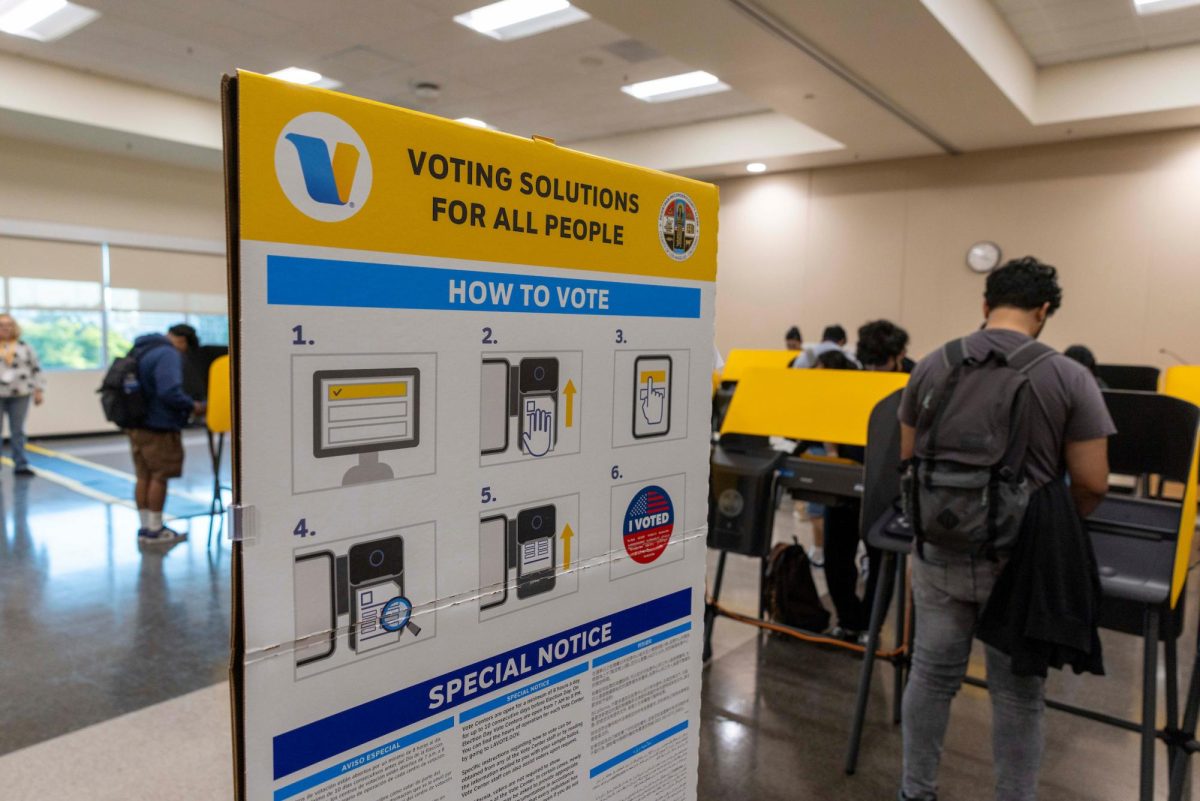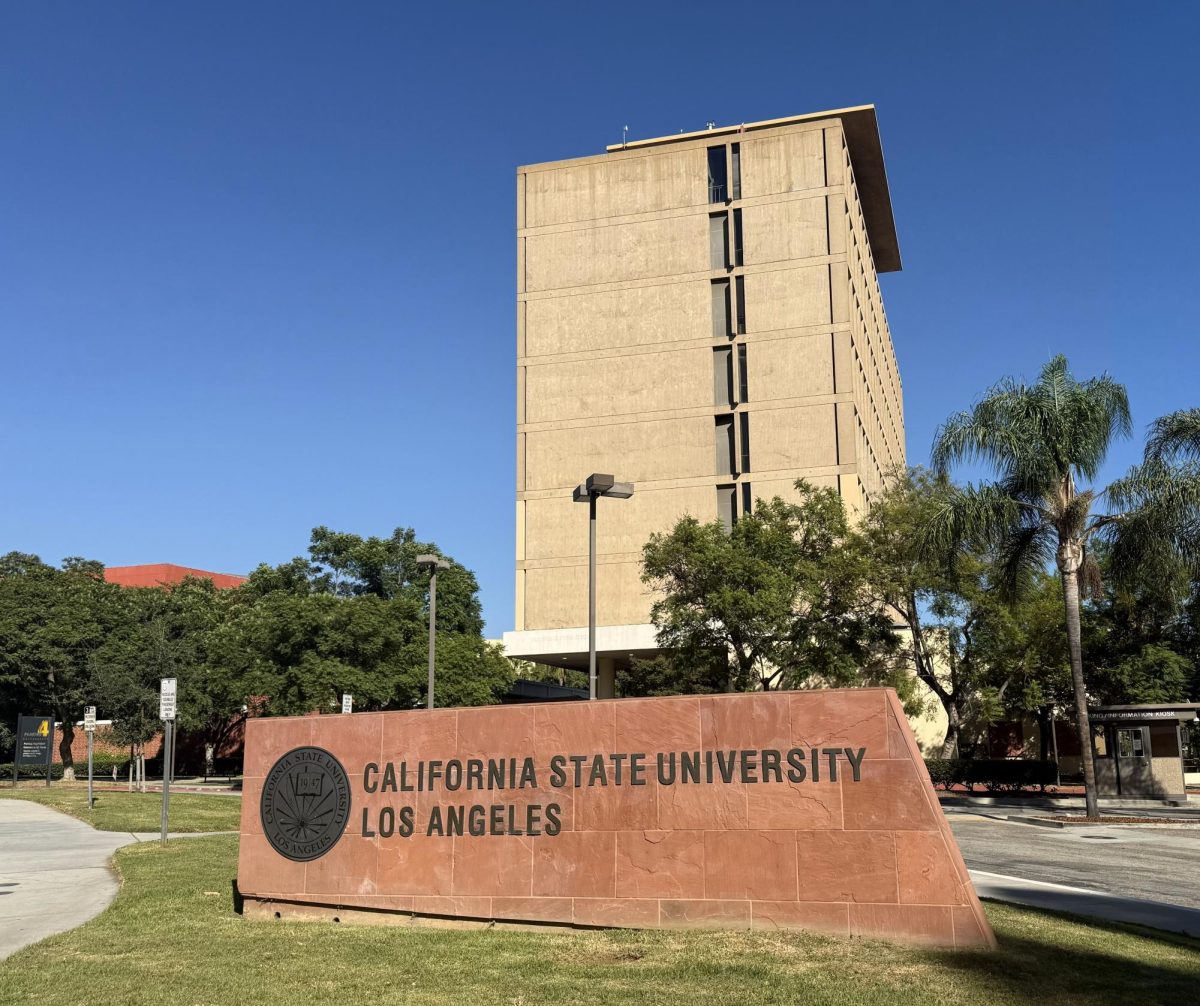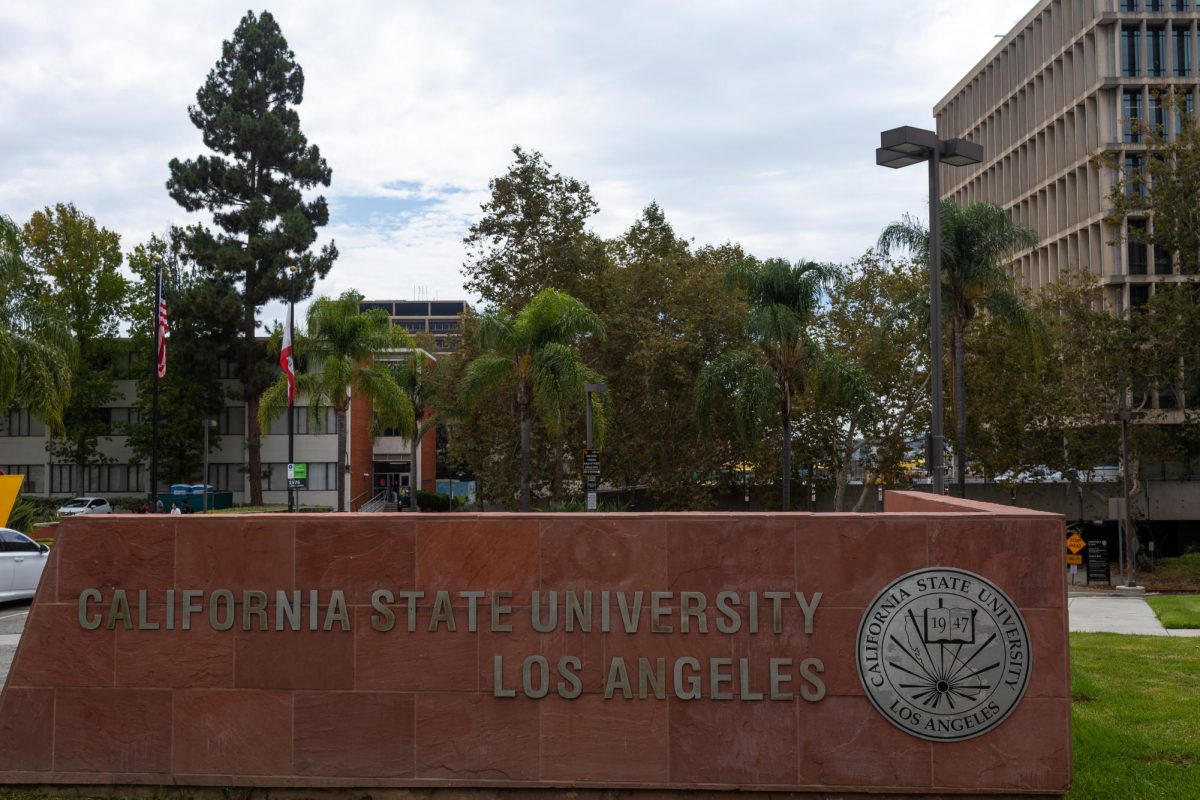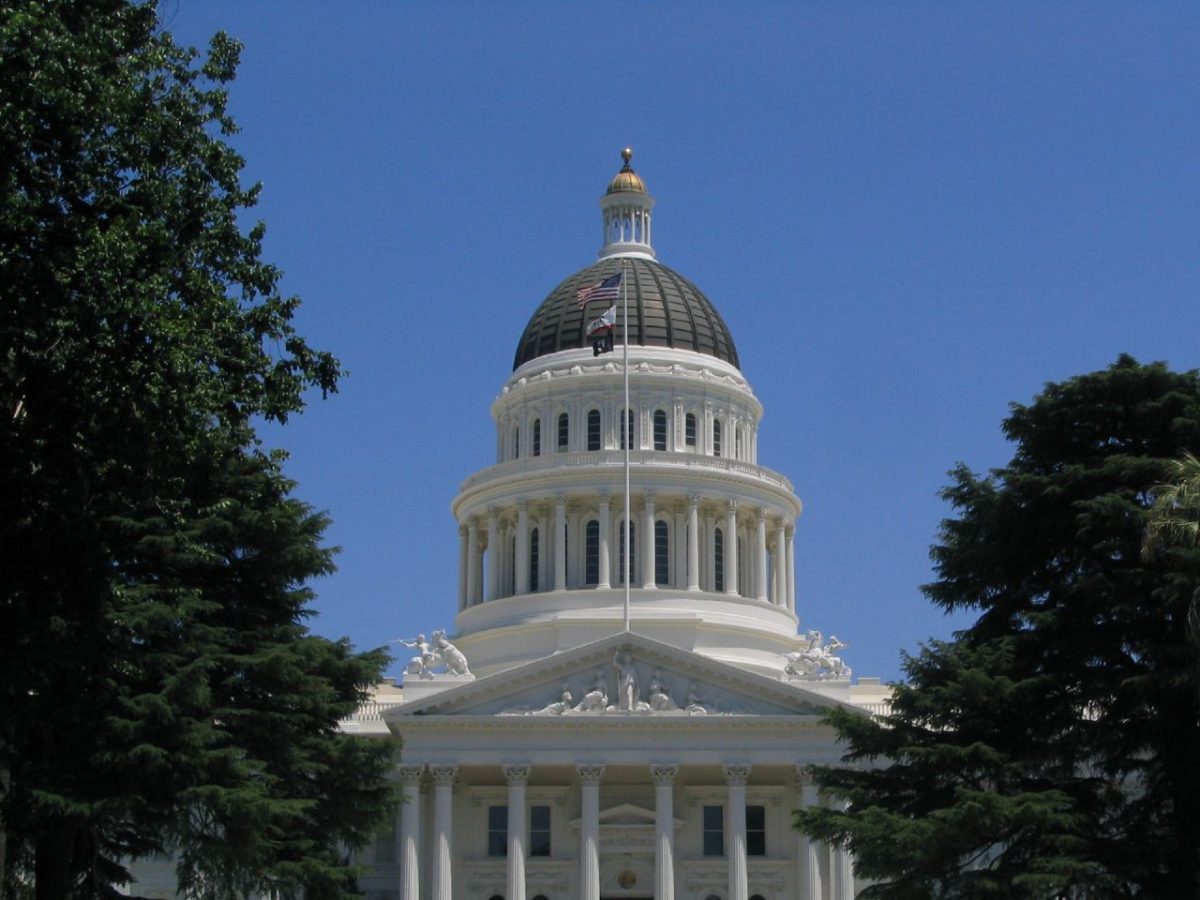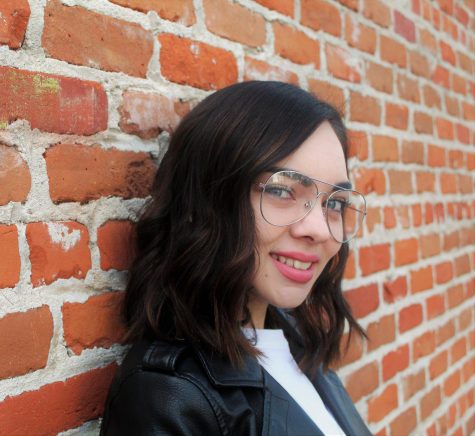Thousands of women filled the streets of Downtown Los Angeles Saturday morning to support the third annual Women’s March. Participants waved their signs high as they cheered and danced to music and presentations.
“I’m here today because I love women,” said high school student Candice Hunter. “I think it’s so great that we can come here as a community and support one another and lift one another up, and just come together.”
Women and their supporters were full of emotions as they marched their way through Downtown to the main stage of City Hall for a special programing with public figures. Some of the speakers included Mayor Eric Garcetti, actress Laverne Cox, and American Women’s Rights Attorney, Gloria Allred. The crowd listened intently as speakers delivered messages of women empowerment, social justice, LGBTQ and transgender rights.
“This is the time for change. We brought in over 100 female cabinet members, that’s proof that women are the change…we’re only going up from here,” said Third year marcher Abigail Thomas.
From the marches debut in 2017, following President Trump’s inauguration, turnout numbers were expected to drop due to controversy between movement leaders in Washington D.C. Hundreds of endorsers from the first Women’s March disaffiliated themselves with this year’s movement. Organizers of the event said around 200,000 people packed the streets compared to the 500,000 claimed in 2017.
“To me, numbers don’t matter, results do,” musician Noah Davis told the UT.
Davis recently moved to Los Angeles where he said the diversity and equality is “how it should be everywhere.”
Men, women, children, grandparents, and great grandparents of all race, class, and political ideologies, came out with hand-made signs and dressed in entertaining clothes, all fighting for change.
Each participant interviewed expressed different reasons for deciding to support the women’s movement. Some marched for equality for women and their sexual orientations while some marched in support of the #MeToo movement. Majority of people voiced their distaste of the sitting President and his administration.
Catie Turner, who made her first appearance at this year’s march, said she came to fight against the stigma of the word feminism.
“There’s nothing wrong with being a feminist,” said Turner. “Men can be feminists because feminism is inherently about equality and I want to help fight for that equality in every aspect of a woman’s world.”
This year’s march in DTLA included a variety of ages, with a noticeable amount of Gen Z’s and Baby Boomers.
78-year-old Sandy Treiht said that she has never seen something like the Women’s March. She described it as a “movement with such a mix of people.”
Middle school student Elizabeth Warner and her group of friends, were proud to come out and support women everywhere.
“I’m here because I want to make a difference and stand up for what I believe in and show people that I won’t be silenced anymore,” Warner said. “And I think that’s what we all came here for.”
The Women’s March has spread into a movement that is happening in cities across the United States and outside of the country. Organizers say this is what the future is, and the marches are a celebration and reminder of the change being made every day.

